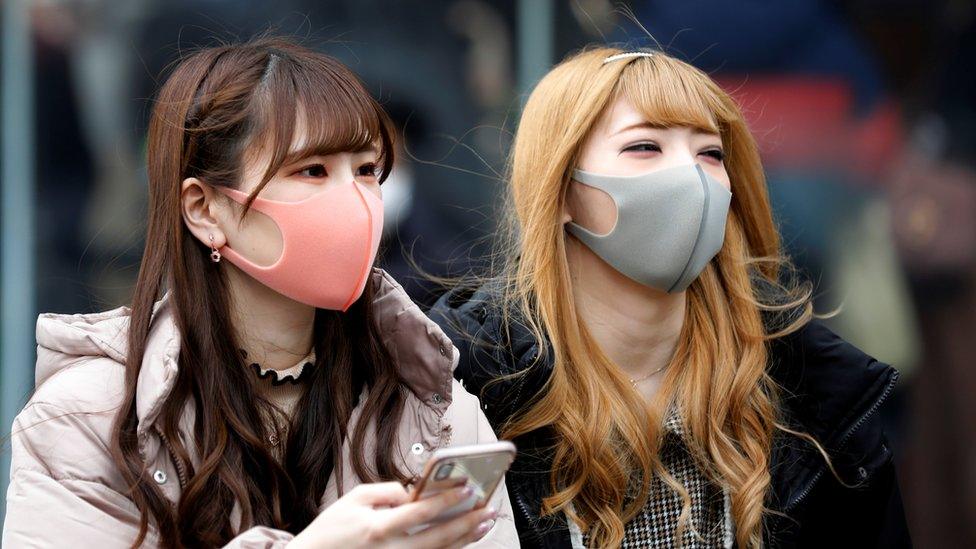Coronavirus: Sharp to use TV factory to make surgical masks
- Published

Japan, where face masks were already popular, has been struggling with shortages
Japanese electronics giant Sharp is to use a TV factory to make surgical masks amid the coronavirus outbreak.
Its parent company Foxconn has already done the same in China to supply its own workers as they make iPhone parts.
Sharp's high-end clean rooms in Japan will turn out 150,000 masks a day within weeks, Japanese media report, as domestic supplies have been exhausted.
Experts, however, warn that such masks do little to protect against an airborne infection.
Current UK health advice is that while masks are useful for medical staff in hospitals, "there is very little evidence of widespread benefit for members of the public".
But face masks have long been a common sight in Japanese cities, particularly during the winter months.
The Covid-19 outbreak has led to much higher demand, with many stores running out of stocks - along with other supplies such as toilet paper.
Sharp's production line in Mie, east of Osaka, usually makes LCD display panels for its television business - but could soon ramp up to making as many as 500,000 masks a day by switching part of its production.
Japan's government has called for more to be made urgently, with Prime Minister Shinzo Abe promising that 600 million masks will be available every month.
That is significantly more than Japanese factories usually make.
Foxconn - officially known as Hon Hai Precision Industry Co Ltd - already announced it would make its own masks in China, where the outbreak began. It expects to produce some two million masks a day.
Many of those will go to the company's own workers, who have been slow to return to work amid China's strict quarantine rules - a problem that may have a widespread impact on the availability of computers, phones and gadgets worldwide.
But the type of surgical masks being made are not proven to protect against infection. They protect against large droplets and sprays, but are loose-fitting and do not filter the air effectively.
Properly-rated respirator masks do filter out airborne particles and are much more effective. They are, however, much more expensive, need to be perfectly fitted and worn constantly, and do not protect the eyes.
The panic-buying of masks is hitting global supply - prompting the US surgeon general to appeal to people to stop buying them.
"They are NOT effective in preventing general public from catching coronavirus, but if healthcare providers can't get them to care for sick patients, it puts them and our communities at risk!" .
- Published6 February 2020
- Published16 March 2022